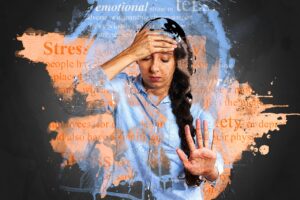
Social Media
In our rapidly evolving digital world, where social media platforms have become integral parts of our daily lives, the impact of these virtual spaces on mental health cannot be ignored. With the constant barrage of information, the pressure to present an idealized version of oneself, and the addictive nature of scrolling through timelines, social media has both positive and negative effects on our well-being.
The Positive Side of Social Media
Let’s start with the positives. Social media has undoubtedly transformed the way we connect with one another. It allows us to bridge geographical boundaries, reconnect with old friends, and build supportive communities. Sharing our thoughts, experiences, and achievements can boost our self-esteem and provide a sense of belonging. For those struggling with mental health issues, social media can be a lifeline to seek support and share experiences with like-minded individuals.
Moreover, social media platforms are increasingly being used for raising awareness about mental health concerns. Campaigns, hashtags, and online initiatives have played a vital role in reducing stigma and encouraging open conversations about mental well-being. It’s a powerful tool for spreading knowledge and resources.
The Dark Side of Social Media
However, the coin has another side, and it’s crucial to address the potential negative impacts of social media on mental health. Excessive use of social media can lead to a phenomenon known as “social media addiction.” Constantly checking notifications, comparing one’s life to others, and seeking validation through likes and comments can become all-consuming, contributing to anxiety and low self-esteem.

The unrealistic portrayals of life on social media, often characterized by filters and carefully curated content, can give rise to a phenomenon known as “FOMO” or the “Fear of Missing Out.” This fear can induce feelings of inadequacy and loneliness, as individuals compare their real lives to the idealized versions they see online.
Cyberbullying is another significant concern. The anonymity provided by social media platforms can embolden individuals to engage in hurtful behavior, causing emotional distress and harm to the mental health of those targeted.
Striking a Balance
So, what can we do to ensure that our relationship with social media is a healthy one? Striking a balance is key. Here are some tips to consider:
- Limit Screen Time: Set boundaries for how much time you spend on social media each day.
- Curate Your Feed: Unfollow accounts that make you feel inadequate or anxious and follow those that inspire and educate.
- Engage Mindfully: Before posting or scrolling, ask yourself if it’s adding value to your life.
- Connect Offline: Make an effort to nurture real-world relationships and experiences.
- Seek Support: If you’re struggling with mental health issues, use social media to connect with mental health professionals and support groups.
In conclusion, social media’s impact on mental health is complex and multifaceted. While it can be a source of connection, support, and awareness, it also has the potential to exacerbate feelings of inadequacy and anxiety. By using these platforms mindfully and seeking help when needed, we can harness the positives while mitigating the negatives, ensuring that our online interactions contribute positively to our mental well-being in this digital age.





